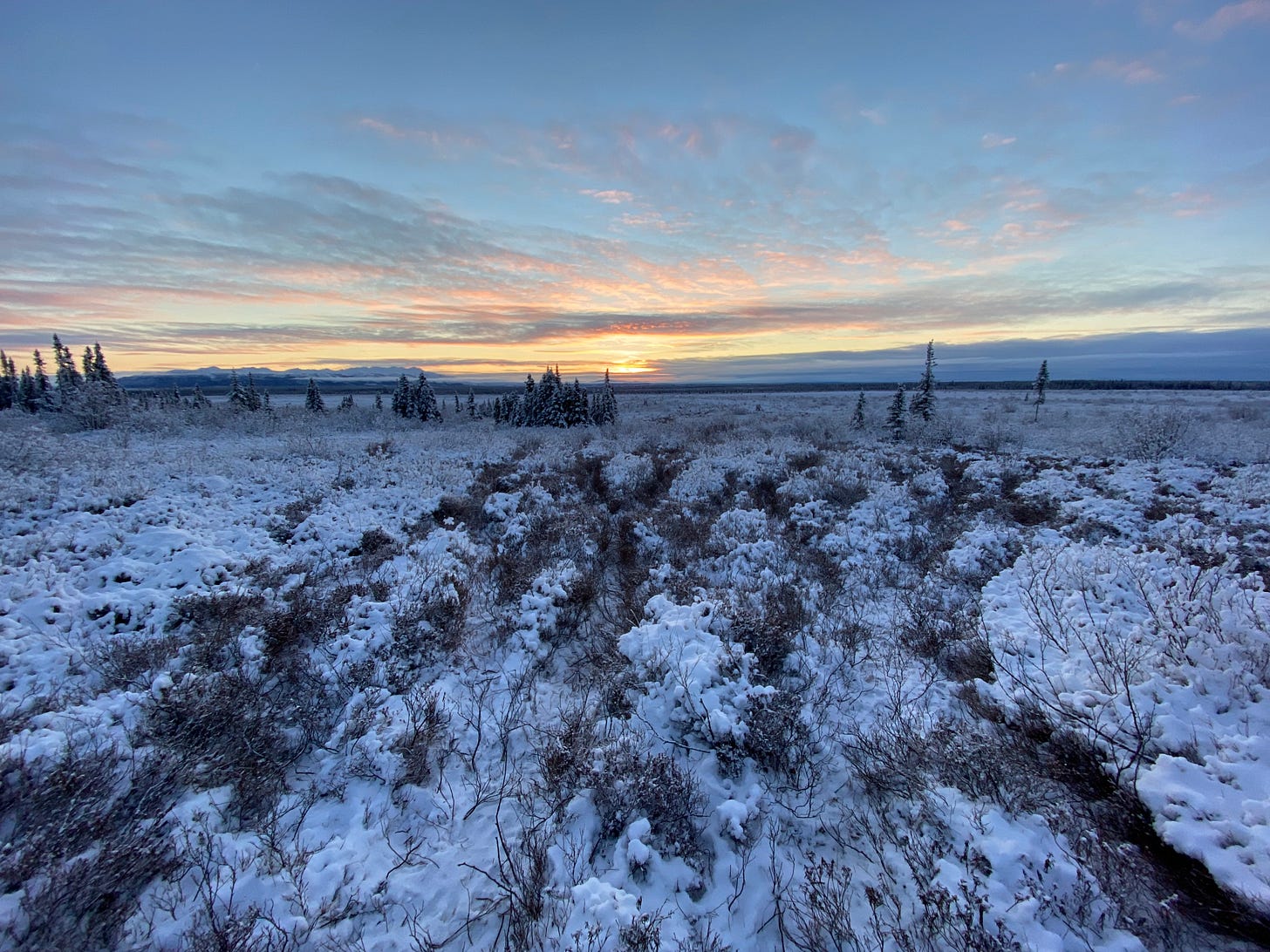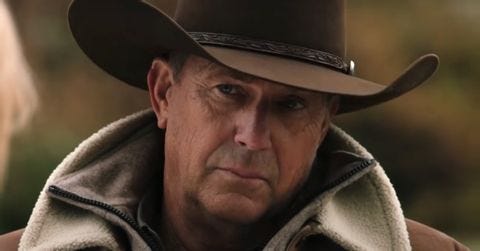First Moves (for writers)
A Tale of Two Sentences
Specifically I’m talking about opening lines. The way you start a story, or a song, or even a film.
How do you choose where to begin?
This week I want to share two opening sentences I’ve written recently: one for my book, and one for a National Geographic piece that was published yesterday. I want to show what happened to these sentences, and how they seemed compelling enough to be opening lines. In the end one survived, one was killed. I fought with my editor over that death.
First, though, a couple of thoughts for those who, like me, struggle with the shit business of starting.
I have always been one for whom the first sentence must come clear before I can do any other writing. I have to nail it, or at least like it, in order to move on. This, friends, is a handicap. A self-inflicted wound. Certainly a form of procrastination.
But if you are this way, how do you begin to think about beginning? Over the years I’ve heard, and given, lots of advice on how to imagine your first-line. I’ve been told and retold others to start a story at the point where things change forever. Or in the middle of the action. Or during a lull in the action. Or during a storm of strong emotion. You see where this is headed. We can boil it all down to this: start anywhere—just start.
Still, one of the best pieces of advice I ever received, one I still try to follow, came from Richard Todd, a former editor at The Atlantic and also an editor of books, including the work of Tracy Kidder and Adrian Nicole LeBlanc. He and I were on a panel together once. He suggested to me that stories should “Start as you mean to go on.”
“I have been a longtime foe of the dramatic beginning,” he said. “Because you get into the position of having to do so much furious backpedaling.”
Dick died in 2019; I regret never getting to work with him. I still have his quote floating around my desk on a tiny piece of paper, and lately each April gust pushing through the screen door blows it to the floor. I could tape it to something, or stash it somewhere. But I think, for now, that picking it up over and over is part of honoring Dick’s advice. Part of developing some form of practice as I write a book, which is nothing less than a daily act of faith—I must literally begin each day anew and trust that something is coming together.
A couple of weeks ago I was messing around with part of what will become my book’s first chapter. This book, generally speaking, is about the Arctic, and this chapter is about wolves. Because Wolf Chapter will open Arctic Book, it seems like it must do a lot of work. Or at least it seems that way for now, in my mind. So I want the first sentence to be awesome. Beautiful. Poetic. I want it to draw readers onward. Those first words, man, they’ve got to f***ing sing! I believed I needed to nail it before I moved on.
Again, friends, this is a major problem. Maybe an addiction. It is not Good. But these things kind of weirdly tend to reinforce themselves, and eventually I stumbled into a sentence I liked. I wrote:
“The Arctic is still a dream of animals. The remotest landscapes may be most of all the dream of wolves.”
There it is! I thought. This is how my book will begin.
I got up and made a sandwich or changed a diaper or something. And I felt good for a while. Then the doubt crept in. Little nagging voices. Pretty dramatic, man. Oooh, dreamz, man. Sounds like Dances with Wolves! I could hear my younger brothers crapping all over this sentence. I could see Kevin Costner doing it with them. That’s all fine. But when I held up the words and turned them around I noticed a few things.
Suddenly it did feel melodramatic. As an opening line, it wasn’t supported by anything—it had to stand on its own as a greeting, an invitation, a statement. It hadn’t yet earned any dramatic weight, it would not have the backing of an ensemble. Placed at the start of the book, the most declarative spot of all, you might argue, these words could assume too much, set the wrong tone. Right off the bat a number of potential readers probably might close the cover and shake their heads. Wtf is he talking about, dreams of wolves?
But aside from my internal critique there was something else. First sentences, like all sentences, are in conversation with others not our own. What we write will be read and interpreted and even spoken of in concert with or opposition to what others have written. No one expects you to know exactly what sort of alchemy your sentences will get up to upon their release into the world. But you’re probably responsible for at least considering the most glaring collisions.
There it is! I thought. This is how my book will begin.
For me this means thinking about Arctic Dreams, by Barry Lopez. His seminal work on the Arctic launched me on my own path, almost 20 years ago. I love the book, and I seek both to honor and move beyond it—while also not plagiarizing it or doing what Vanilla Ice did to David Bowie and Queen.
I held up my sentence to the light of Lopez. The words evoked his title and his tenor, and in a way they were meant to—they were reflections of my respect for his work. But my sentence also looked weaker now. My use of the word dreams seemed to be directly speaking to Lopez’s title, or even challenging it. At worst it felt like a silly echo—you’re beginning your book with … his book?
I thought about it. Deleted it. Rewrote it. Tried variations. Eventually I heard Lopez’s voice in my mind: Just put it somewhere else in the book.
I thought, That’s good advice.
~
True story: editors, even when they’re close old friends, don’t always understand, or like, what you’re trying to do.
This week I wrote for Nat Geo about a fantastic effort to save threatened caribou in British Columbia. The work is being led by two indigenous groups—West Moberly First Nations, and Saulteau First Nations. If you’ve been reading me for a while, you probably know that I believe indigenous knowledge equals or exceeds scientific understanding on most landscapes, and that it has been ignored in environmental policy and planning for too long. I’ll come back to this idea next week; it’s important and I want to amplify it.
For now, though, I had a story to write, which meant I needed a first sentence.
The background of the piece was this: In the past, when indigenous people lived by hunting and gathering, there had been many caribou in this part of B.C. Roland Willson, chief of West Moberly First Nations, told me the caribou had once been “like bugs on the landscape,” plentiful and thick.
But after a century of settler-driven development, extraction, and logging, the caribou numbers had plummeted. Today they’re a threatened species in Canada. And from the perspective of the Nations, no one was really doing anything to save them. So indigenous people stepped up to try.
With this in mind, I wrote my lede:
“In eastern British Columbia the mountains echo with memories of vanished caribou.”
It was brief, evocative, decently pretty; just enough, perhaps, to turn a daily news story into something a little sharper, and help move readers down the page.
Then my editor read it and said, Nope.
In the edit he wrote:
I laughed when I read this. Maybe we’d both been watching too much Yellowstone. I immediately disagreed—there’s no accounting for taste!—but I also saw that my editor wasn’t necessarily wrong. You could read that sentence and think it was too much, that it was trying too hard. Or—like him—you might wonder how a memory can echo through the mountains.
The very next line in the story was a quote from Chief Willson about how elders told him that the hills once crawled with caribou. I thought that quote served to reinforce the idea of memory carrying on, echoing from one generation to the next across physical and metaphysical terrain—even a ghostly sort of resonance, the unsound of something long gone.
My editor said, Look man, I know you’re going for poetry. But if this was any other writer, I wouldn’t even be having this discussion …
Ok, ok. I had a choice: fight for the sentence—stake some small part of myself on these 12 words—or look for another way. My editor told me he’d stand up for the sentence if I really wanted it. But did I? In this case it seemed worth it to let go and rearrange the pieces of the puzzle.
Eventually I came up with this:
“In eastern British Columbia it was once impossible to count caribou.”
This new sentence required me to tinker with the third paragraph, but only slightly. Otherwise, it worked. It got the point across. It didn’t have the same ring, but it still had a certain rhythm. The truth is that I’m slowly learning I can’t afford to scutter after perfection with every opening line.
There are too many others waiting to be written.
Tell me about your sentences:
Or send this post to someone who writes:
And of course you should:








I ve always thought that the last sentence is the most important!! (I ve written some that I am personally proud of although I am yet to share any of my texts) Now I realize I should have thought of something to make the reader want to go til the last sentence before I think of publishing anything!
Thank you Neil!
Which editor? I like the echoing. As it was published, I just stop. And think. Hm, oh, I get it. Now there are few enough caribou that you actually CAN count them. And then the quote confirms that I figured it out. Eh. I like the words vanished and echo. Accurate AND poetic. Kills two caribou with one stone.